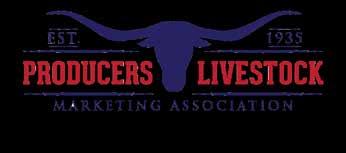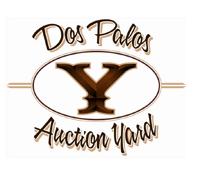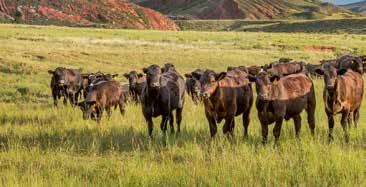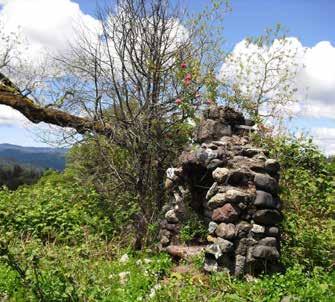
5 minute read
RANGELAND TRUST TALK
THE MARSHALL RANCH: SINCE TIME IMMEMORIAL
by Keely Brazil, GoWest Marketing for California Rangeland Trust
Ranchers who spend their lives caring for rangeland are a resource as valuable as watersheds and viewsheds. Elizabeth Marshall calls it “heritageshed:” the invisible but tangible sacrifice of generational ranchers who see stewardship as a calling beyond financial return.
Marshall’s s ancestry is European and California Indian. Her family history is a microcosm of California history and so is her Humboldt County ranch. In the 1880s, her pioneer ancestors started out ranching sheep on these hills, near where her Wailaki, Pomo and Yurok ancestors had lived for centuries. Marshall’s grandfather knit these pieces of land together under his business goal of ranching cattle. When her grandmother passed away and left the land to Elizabeth and her brothers in 2005, all that history was threatened by a $2 million federal estate tax from the IRS.
Estate taxes are placed on qualifying property and assets transferred upon the owner’s death. These taxes are calculated based on the market value of the land, which means farming and ranching families are often forced to liquidate in order to pay up.
“The worst thing that you can do to the environment is to impose unreasonable and unachievable tax burdens on land stewards. Taxes have caused subdivision, development and overlogging. With every subdivision you lose some of the land. Taxes are at the root of the demise of the environment. Politicians fail to see this. This disconnect and the resulting policies take away from our ability to survive.”
The New York Times ran a piece in 2007 citing family transition issues as a major threat to forest loss in the United States. “They preserve the environment, but don’t get credit for it,” Laurence D. Wiseman, president and chief executive of the American Forest Foundation, told the New York Times of private forest owners. “It’s a paradox. The public enjoys the benefits but don’t help pay any costs.” High taxes often deter heirs from carrying on the stewardship of their family land. In almost every case, land sold by agricultural families is lost to development.
When the IRS bill came, Marshall turned to her grandmother’s trusted friend David Sanchez. Longtime pastor in their little Northern California mountain community, Sanchez had also been its mail carrier for many years. He used to stop along his route at the Marshall Ranch, look out at the Lost Coast view, and pray. Marshall calls him her family’s guardian angel.
“God never rescinded our obligation to work, steward, use and protect the land,” Sanchez says. “I take that very seriously. My faith is at the core of what drives me in




conservation work.”
David set out to find good faith partners who could help keep the ranch together and forward their conservation goals. That’s when he learned about the California Rangeland Trust (CRT).
“The Rangeland Trust’s warmth toward working landscapes and positive attitude toward cattle and livestock was so important,” Marshall says. “We felt the CRT staff were real ranching families. They reminded me of me. I knew that I would be among friends. On his first trip out here, [CEO] Michael Delbar was very empathetic. This is really how we view CRT. We feel like we’re working with good friends—partners we want to be saddled up with.”
After a long battle, the family ranch is safe under the Marshall name and the ranch motto still holds true: Since Time Immemorial. Marshall says she’s able to breathe again. “We’re able to plan good projects and do the work a working ranch should be able to do.” That work includes many environmental projects such as oak woodlands restoration and instream work for fish habitat. Every decision they make is with the good of the ranch in mind.
“It’s like the commitment you have to your children,” Marshall says. “You do it because it’s your blood. Once you sever those roots, they cannot be replaced. You can get someone with a bigger bank account, but you can’t get someone more dedicated. Anyone else would have bought this land and cut it up and sold it for profit. You do things for your own that you would not do otherwise. That’s the phenomena that takes place when you have ties to the land. That’s what makes ranchers the endangered species.”




ESTABLISHED 1950 Join us at These upcoming Special Feeder Sales Saturdays May 15 & June 12
starting at 12:30 p.m. WEEKLY SALE SCHEDULE
MONDAYS: DAIRY, FEEDERS, SLAUGHTER BULLS & COWS THURSDAYS: SLAUGHTER BULLS & COWS
SALE INFORMATION FIELD REPRESENTATIVES
OFFICE..............................209 387-4113 JOEL E. COZZI.................209 769-4660 JAROD COZZI..................209 587-6082 JOEL A. (JOEY) COZZI ...209 769-4662 GARRETT JONES ..........209 710-7904 DOUG GALLAWAY..........209 617-5435 MIKE VIEIRA.....................209 761-6267
Find and follow us on facebook!
Visit us online at www.dpyauction.com 16575 S. HWY 33 • DOS PALOS, CA 93620
located 1/8 mile south of Hwy. 152 on Hwy 33
Headquarters in North Salt Lake, Utah Livestock sale barns in the following locations: Vale, Oregon – Wednesday Sale
Manager, Jason Johnson • (541)473-3136
Salina, Utah – Tuesday Sale
Manager, Wayne Cowley • (435)529-7437
greeley, Colorado – wednesday Sale
Manager, Brad Jones • (970)353-4121
jerome, Idaho – tuesday Sale
Manager, Dan Schiller • (208)324-4345
country & video sales representatives
South Dakota Country • Monte Snook • 307) 468-2277 Arizona Country • Danny Major • (928) 925-3710 California/Nevada Country • Matt Beechinor • (559)676-0488 Greeley Country • Jeff Berry • (307)421-3031 Greeley Country • Dustin Bowling • (970)218-0582









